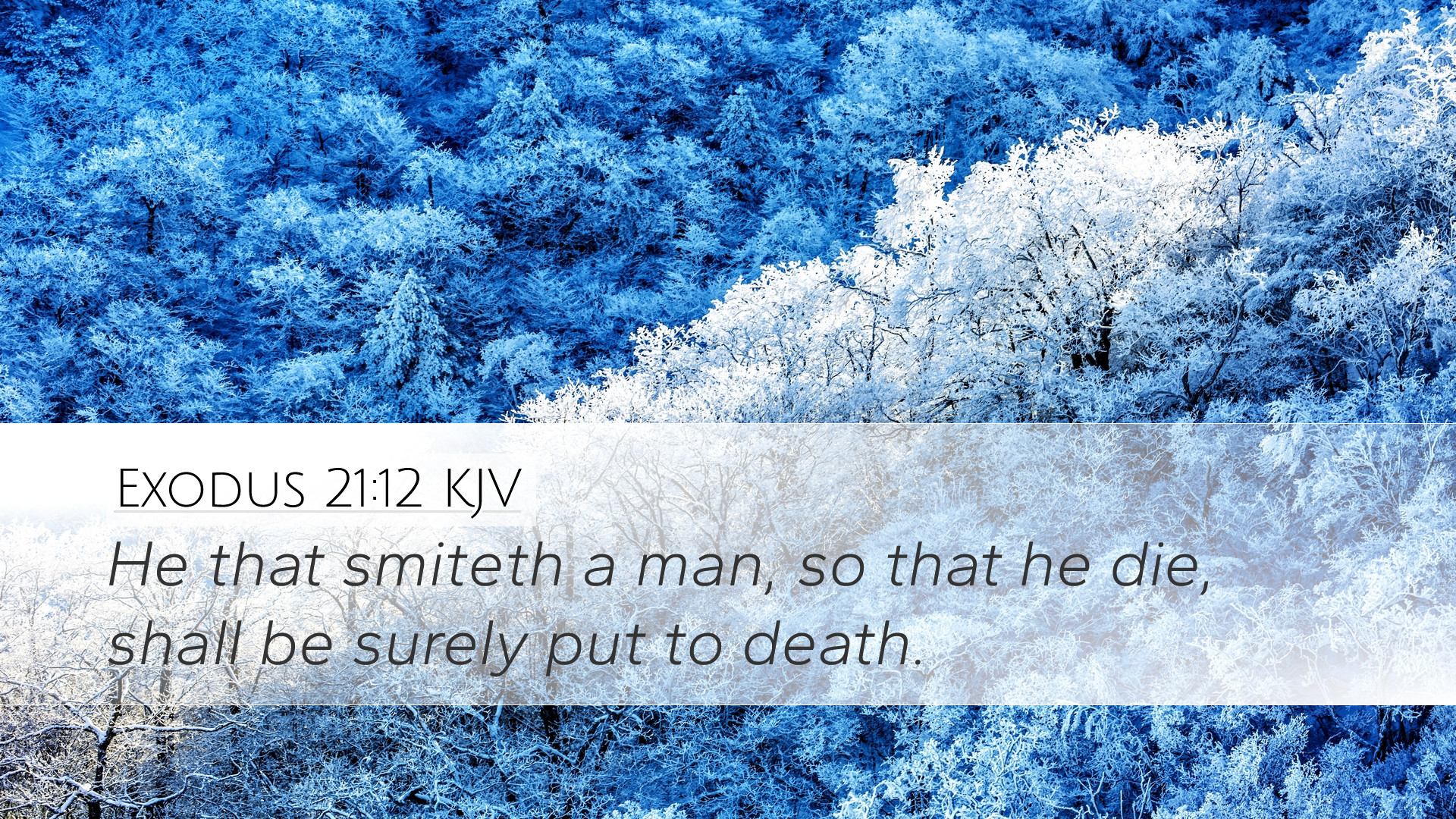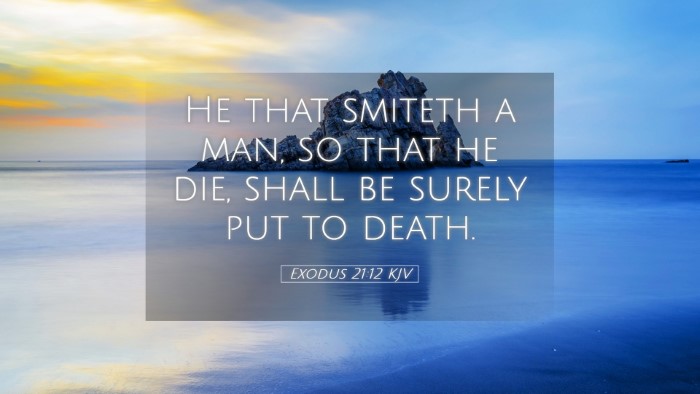Exodus 21:12 - A Commentary
Verse Text: "He that smiteth a man, so that he die, shall be surely put to death."
Contextual Overview
Exodus 21 forms a part of the larger context of the Mosaic Law, which serves to establish justice and societal order
among the Israelites. The laws presented here address various social and moral issues, providing guidance on justice
and the sanctity of life.
Exegesis of the Verse
This verse deals explicitly with the severe implications of taking a human life. It underscores the principle
that murder is one of the gravest offenses within the community, requiring a proportionate response—capital punishment.
The use of the word "smiteth" indicates more than just a casual blow; it refers to an act resulting in death,
reflecting intent or gross negligence, which is critical in understanding the application of this law.
Theological Implications
1. The Value of Human Life: This command reflects the intrinsic value of human life, created in
the image of God (Genesis 1:27). Any act that deliberately ends a life is seen as a direct assault on God's
creation.
2. Divine Justice: The expectation of capital punishment indicates God's commitment to justice.
He sets boundaries on human behavior, aiming to preserve order within His community.
3. Moral Responsibility: This commandment places moral responsibility on individuals,
charging them with the duty to respect life and avoid harm to others.
Insights from Public Domain Commentaries
-
Matthew Henry: Henry notes the importance of this law in maintaining societal order.
He emphasizes that the death penalty serves to deter others from committing similar acts and conveys the seriousness
with which God views murder.
-
Albert Barnes: Barnes discusses the principle of accountability in human actions.
He explains that this law seeks to eliminate wickedness and preserve communal integrity, making it clear
that society must deal justly with those who take life unjustly.
-
Adam Clarke: Clarke expands on the implications of intent in the act of killing.
He suggests that the stipulation of "smiteth" implies a specific level of culpability, which is essential for
determining the nature of consequences, reflecting God's justice.
Practical Applications
The contemporary implications of this verse extend into moral teaching and legal frameworks today.
For pastors and theologians, it provides a basis for discussing the importance of justice, human rights,
and the sanctity of life.
1. Preaching on Justice: This verse can be the foundation for sermons on God's view of justice
and the gravity of sin. It allows for conversations about how communities can navigate moral dilemmas in
their jurisdictions.
2. Ethical Discussions: This passage opens up dialogues about current issues such as capital
punishment, advocacy for the oppressed, and legal systems, encouraging believers to reflect on their societal
responsibilities.
3. Pastoral Care: For pastors, understanding the gravity of taking a life is essential in providing
care for those who are impacted by violence, leading to conversations about forgiveness, healing, and restorative justice.
Conclusion
Exodus 21:12 stands as a pivotal verse within the Mosaic law, serving to illustrate the seriousness with which
God views the act of taking a human life. Through the insights of historical commentators and contemporary
applications, this verse provides a profound opportunity for exploration of justice, ethics, and the sacredness
of human life within a theology that aims to reflect God's character in a fallen world.


